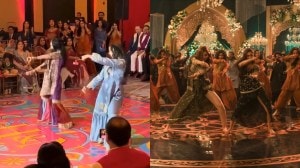Stay updated with the latest - Click here to follow us on Instagram
Exercise caution in banning books: SC
The SC has held that banning a book/publication was a 'drastic' power vested in the government and should be exercised cautiously.
The Supreme Court has held that banning a book/publication was a “drastic” power vested in the government and should be exercised cautiously lest it violates the “right of privacy” and Constitutional guarantee of freedom of speech and expression.
Dismissing Maharashtra government’s appeal challenging the Bombay High Court’s decision to quash the ban and confisciation of the controversial book — “Shivaji The Hindu King in Muslim India,” the apex court said the ban on notification failed to clearly spell out the so-called enmity it could provoke between the communities/people as claimed by the authorities.
“Undoubtedly,the power to forfeit a newspaper,book or document is a drastic power inasmuch as it not only has a direct impact upon the due exercise of a cherished right of freedom of speech and expression as envisaged in Article 19(1)(a) of the Constitution,it also clothes a police officer to seize the infringing copies of the book,document or newspaper and to search places where they are reasonably suspected to be found,again impinging upon the right of privacy.
“Therefore,the provision has to be construed strictly and exercise of power under it has to be in the manner and according to the procedure laid down therein,” a Bench of Justices D K Jain and H L Dattu said in a judgement.
The apex court said the ban issued under Section 95 failed to satisfy the requirement of the law for its justification as the state government could not identify the communities that could be affected by the circulation of the book.
“It is manifest that the notification does not identify the communities between which the book had caused or is likely to cause enmity. Therefore,it cannot be found out from the notification as to which communities got outraged by the publication of the book or it had caused hatred and animosity between particular communities or groups.
“We feel that the statement in the notification to the effect that the book is ‘likely to result in breach of peace and public tranquillity and in particular between those who revere Shri Chhatrapati Shivaji Maharaj and those who may not’ is too vague a ground,” the apex court said.
The book written by American author James Laine and published in 2003 by the Oxford University Press,was banned by Maharashtra government after 150 members of Sambhaji Brigade had ransacked the Bhandarkar Oriental Research Institute (BORI) in Pune on Januray 5,2004 alleging that it was derogatory to the great Maratha leader.
The apex court said the power to issue a declaration of forfeiture under the provision postulates compliance with twin essential conditions,viz.,(i) government must form the opinion to the effect that such newspaper,book or document contains any matter the publication of which is punishable for causing ill-will between different groups,communities,castes,etc;(ii) government must state the grounds of its opinion.
“Therefore,it is mandatory that a declaration by the state government in the form of notification to the effect that every copy of the issue ofthe newspaper,book or document be forfeited to government must state the grounds on which the state government has formed a particular opinion,” the Bench said.
The apex court agreed with the findings of the High Court that there is nothing on record on the basis whereof the government could form the opinion that the book was likely to promote disharmony or feeling of enmity between various groups or likely to cause disturbance to public tranquillity and maintenance of harmony between various groups.
The state government had earlier approached the apex court after the High Court had in 2007 lifted the ban on the book on a petition filed by advocate Sanghraj Rupawate,documentary filmmaker Anand Patwardhan and social activist Kunda Pramila.
The High Court had,in its order,said the notification issued by the state government was not sustainable in the light of the apex court’s order which had quashed criminal proceedings against Laine over allegations that the book promoted social enmity.
The state government had issued the ban on January 15,2004,under section 95 of the Criminal Procedure Code.







